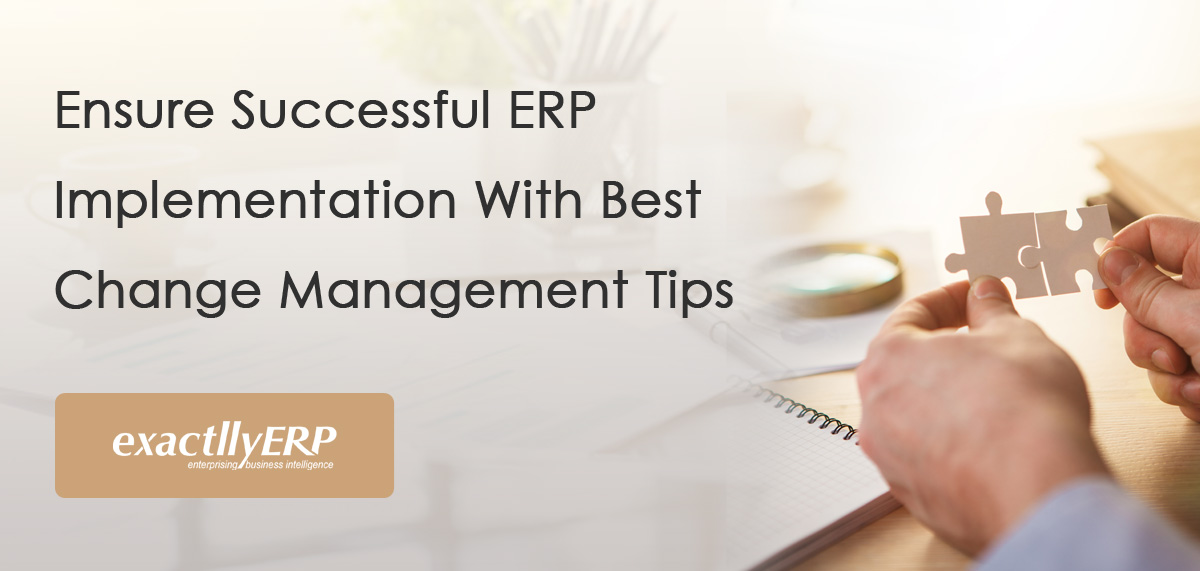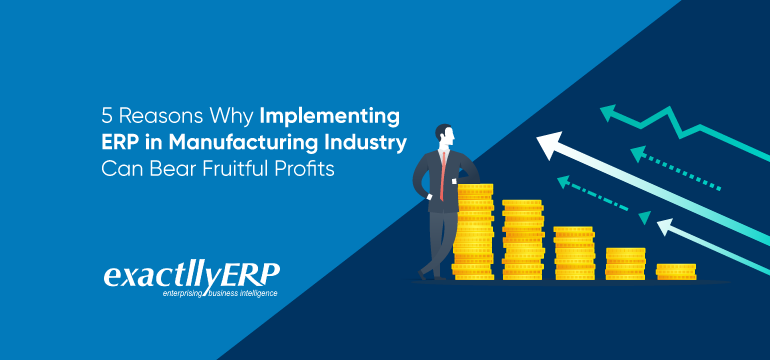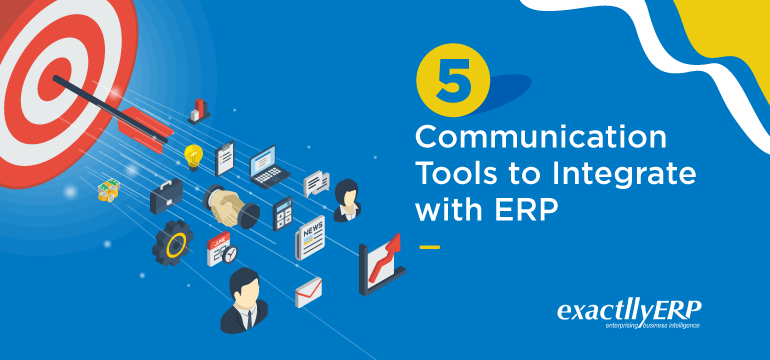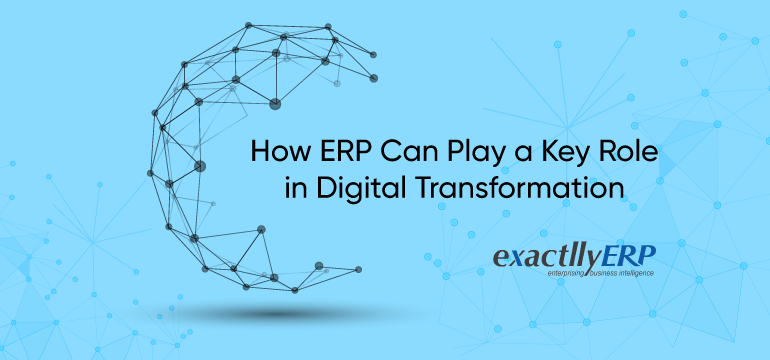Why Businesses Must Choose Industry-Specific ERP Software?
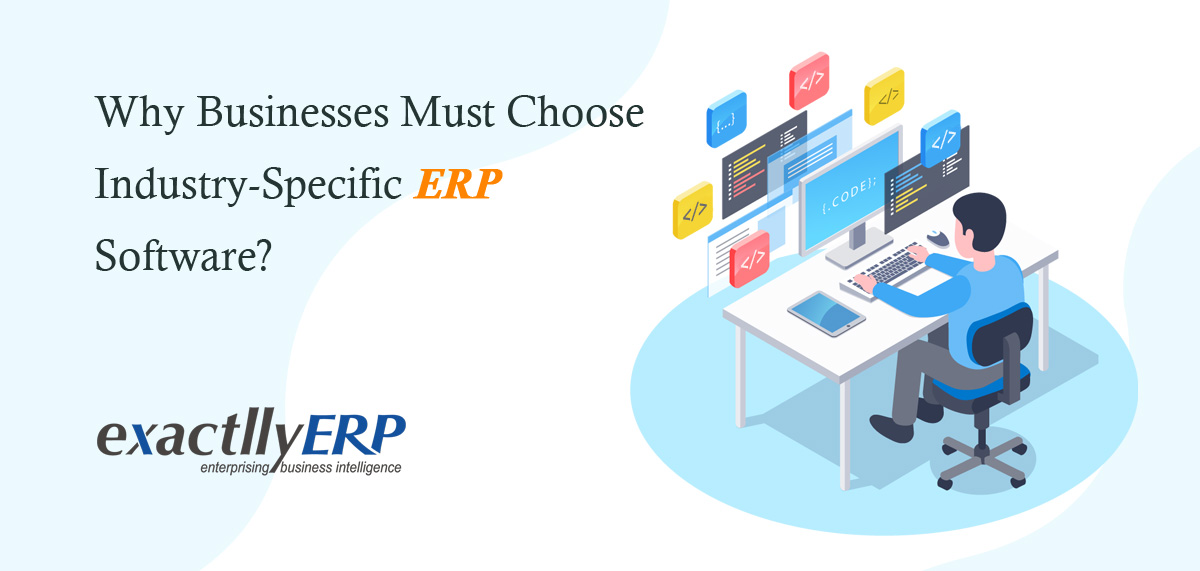
Indicating the best ERP software is no longer a menacing procedure for businesses. This is because with evolving technologies, now there are ERP systems that specifically align with exact industries. This saves both money and time. When businesses use ERP software that matches with their respective industries, only then it is possible to manage business processes with little to zero requirement for customizations. The popularity of industry-specific ERP is on the rise as employee training with these systems is also very hassle-free. This way, organizations are able to get hands-on more functionality for their specific industry with industry-specific ERP software.
Advantages of Industry-Specific ERP software:
An organization can instantly reach the next level in context to ERP projects and stand tall against all competitors with the implementation of industry-specific ERP software. The benefits of these ERP systems are as follows:
-
Quick Implementation and Decreased Costs –
The designing of generic ERP software does not permit it to fulfil particular industry demands without the supplementation of add-ons and integrations. Such customizations are not only cumbersome but pricey as well. Also, every time a vendor will update the ERP system, rewriting the customizations will be necessary. For instance, if we look at the automotive industry, the supplier and consumer demand alteration reports display how demand has transformed with time. When an ERP solution is unable to offer this kind of functionality, it will automatically decrease its capacity to compete. Hence, industry-specific ERP business collaboration is critical in today’s time.
By looking at all these challenges, we can understand how beneficial industry-specific software will be for businesses of today’s time. These systems carry built-in functionality with the vendor carrying the ability to set the system quickly. There is no lack of a documented system of procedures and core model fixation template with these systems.
-
Best Industry Practices and Customer Requisites –
Organizations can tremendously benefit from industry-specific ERP. This is because the vendors of these solutions carry domain knowledge in particular industries and also with the customers. It is imperative to select an ERP partner that takes active participation in known industry organizations. Such vendors construct functionality in the solutions depending on the knowledge gained from the industries.
-
Support for Regulatory Requirements –
The best reason to implement industry-specific ERP is due to its functionality that supports compliance and regulatory requisites for businesses. Especially when it comes to aspects like supply chain and quality, these systems help businesses to comply with all the rules and regulations of the industry. Every business can rapidly meet the requisites of transforming internationalization regulations and adjust to structural industry changes and aim for long-standing success. Organizations must select an ERP system that supports worldwide compliance in the spaces of financial accounting, delivery, and quality.
-
Complete Adaptability –
Businesses investing in industry-specific ERP platforms can accomplish more efficiency along with supporting the transformations of tomorrow. They can even expand and craft new applications that are scalable and dependable without the need for developing version lock-in. As upgrading gets easy and rapid with these ERP systems, it is possible to stay current and decrease the gap that lies between altering business environments and ERP. Businesses can streamline the adoption of advanced technologies and new capabilities, adapt to futuristic disruptions, and follow continuous improvement with these ERP solutions.
-
Convenience like no other –
Industry-specific ERP software will always offer similar tools for finance, business management, and accounting like generic systems. However, the former goes far beyond and doesn’t just offer tools. These include capabilities and attributes modified as per an organization’s particular industry and operational requirements. It is impossible for generic ERP software to offer this. For instance, a production planner with an industry-specific ERP system can employ the functionality of combined batch scheduling for assisting them in scheduling and planning product production. This will give a boost to sales order also. Implementing generic software will call for involving a third-party system product or instigating a pricey add-on. Hence, an industry-specific system will always make it faster and easier for the workforce to complete their tasks.
What are some of the Features of Industry-Specific ERP Software?
The features of industry-specific software are as follows:
- Artificial intelligence and business intelligence
- Wireless barcoding
- Financial and accounting management
- CMMS or Computerized maintenance management system
- Customer relationship management
- MRP or Material requirements planning
- Human Resources
- Supply chain management
- Programmed unit-of-measure conversions
- Demand planning and estimation
- Manufacturing
- Inventory management
- Expense change management
- Corrective/Non-conformance actions
- BMRs or Batch manufacturing records
- Validation of FDA software
- Regulatory compliance
- Quality management
- Creation of certification of analysis and safety data sheet
- Lab, formula, and recipe management
Verticals that can Benefit from Industry-Specific ERP Software:
Businesses belonging to these industries can bring drastic changes in their business processes with industry-specific ERP software implementation. The verticals are as follows:
- Healthcare
- Manufacturing
- Field service
- Retail
- Cleaning solutions
- Warehouse
- Distribution
- Services and trade
- Real estate
- Automotive
- Marine engineering
- Education
- Laundry management
- Service and rental
- Waste management
- Beverages and food
- Field service
Deployable Solutions for Various Industries:
Presently, Exactlly is a widely popular name offering rapidly deployable industry-specific ERP solutions for major industries with characteristics for suiting their particular processes. These ERP software solutions are equipped with powerful modules that can undergo customization easily for combatting market challenges and provide businesses with automated processes. Few industries that can largely benefit from these ERP systems and how are listed below:
-
Manufacturing –
It is possible to simplify production processes and attain maximum performance at manufacturing plans with industry-specific ERP deployment that is also BI-powered. This again helps with accurate measurement of material requisites, preventing raw materials wastage, generating consumer demand forecast, and a lot more. Scheduling output activities are possible depending on the manpower and competence of plants and also uphold quality control.
-
Construction and Real Estate –
Multi-capability and cloud-based industry-specific ERP in the construction industry proves to be highly beneficial. With these, automating property sales, construction of the real estate, and project management is easily possible. Right from gaining real-time insights, running marketing campaigns from ERP systems, and managing sales lifecycle, businesses can achieve a lot from industry-specific platforms.
-
Retail –
When it comes to ERP in the retail industry, businesses can offer a unified shopping experience to customers with retail management ERP software solutions. These industry-specific ERPs are customized for retail enterprises. These are perfect for establishments of every size that includes both multi-chain and single stores. It is possible to automate retail activities like consumer service, billing, discount computations, and inventory management with cloud ERP systems.
-
Logistics and Warehousing –
Gaining complete control over stock and inventory is now possible with cloud-hosted industry-specific ERP software that again includes warehouse management modules. Businesses can automate inventory restocking depending on levels of reorders and also indulge in optimizing storage. Error reduction in shipping and picking for fast processing and order completion are benefits that these systems offer to businesses. Also, managing logistics and supply chain is possible from one ERP platform for the purpose of storage.
Final Say:
Now with all the benefits and features clearly mentioned, businesses need not think twice before investing and implementing industry-specific ERP software. But yet businesses must determine carefully whether these systems are applicable for their particular organization or not. Businesses can understand this by taking a look at the various business processes. They can then realize whether they need basic or advanced functionalities in context to ERP software for improving operations and growing profits. exactllyERP is an all-inclusive solution that can meet the requisites of various business verticals. Learn more by watching the Free Demo. Contact Us for availing services.
FAQ:
(1) Why is ERP required in the business industry?ERP software is necessary in today’s business industry as it offers complete visibility into the core business procedures and results in system optimization via superior reporting and resource tracking. (2) Why would a company choose to implement an ERP?Cutting down on labor costs and IT expenditure, internal business procedure enhancement, and bettering company performance are the reasons for a company to invest in ERP software. (3) What is an industry-specific ERP Solution?Industry-specific ERP systems offer essential tools for business management, accounting, and finance just like generic systems but these systems offer features that are tailored to an organization’s specific industry. (4) How does ERP help a business?Accomplishing better visibility and the capability of making data-driven decisions are the ways by which ERP proves to be helpful for a business. (5) What are the benefits of ERP?Better data and cloud security, better business reporting, boosted supply chain management and improved customer services are some amazing benefits of ERP software. |

